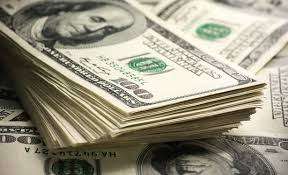L
LequteMan
Guest
Nigeria is not the only country currently experiencing a currency crisis, Angola, Egypt, Uzbekistan and Tajikistan also have their local currencies under extreme pressure. (click here to read more about that)
However, here's what the two African countries in the same situation are doing:
Egypt – Egypt’s ability to defend the currency with reserves has been crippled since the so-called Arab Spring uprising five years ago triggered political instability, drove out foreign investors and curbed tourism, one of the country’s biggest sources of hard currency.
The Egyptians Pounds remains under severe pressure despite being devalued about twice last year.
Since taking over as central bank governor in November, Tarek Amer has sought to shore up confidence in the pound in part by paying foreign stock and bond investors the money owed to them that had been trapped in the country and by limiting some imports.
Just like Nigeria the country has restricted sale of dollars to approved imports and instilled capital controls that have effectively shut out other importers.
Angola – Angola like Nigeria is reeling from the effect of the crash in crude oil prices as it relies heavily on oil with over 95% of its revenues coming from sale of crude.
The country has even devalued twice in the last one year (24% in 2015 and 15% this year) yet the premium between the official rates and black market rates is as wide as 136%. The obvious reason for this is its currency controls and its decision to hold on to a fixed exchange rate. If it decides to relax controls, its reserves will deplete and if it tried to float its currency inflation will spike and most companies could run of out business.
Bloomberg
However, here's what the two African countries in the same situation are doing:
Egypt – Egypt’s ability to defend the currency with reserves has been crippled since the so-called Arab Spring uprising five years ago triggered political instability, drove out foreign investors and curbed tourism, one of the country’s biggest sources of hard currency.
The Egyptians Pounds remains under severe pressure despite being devalued about twice last year.
Since taking over as central bank governor in November, Tarek Amer has sought to shore up confidence in the pound in part by paying foreign stock and bond investors the money owed to them that had been trapped in the country and by limiting some imports.
Just like Nigeria the country has restricted sale of dollars to approved imports and instilled capital controls that have effectively shut out other importers.
Angola – Angola like Nigeria is reeling from the effect of the crash in crude oil prices as it relies heavily on oil with over 95% of its revenues coming from sale of crude.
The country has even devalued twice in the last one year (24% in 2015 and 15% this year) yet the premium between the official rates and black market rates is as wide as 136%. The obvious reason for this is its currency controls and its decision to hold on to a fixed exchange rate. If it decides to relax controls, its reserves will deplete and if it tried to float its currency inflation will spike and most companies could run of out business.
Bloomberg




